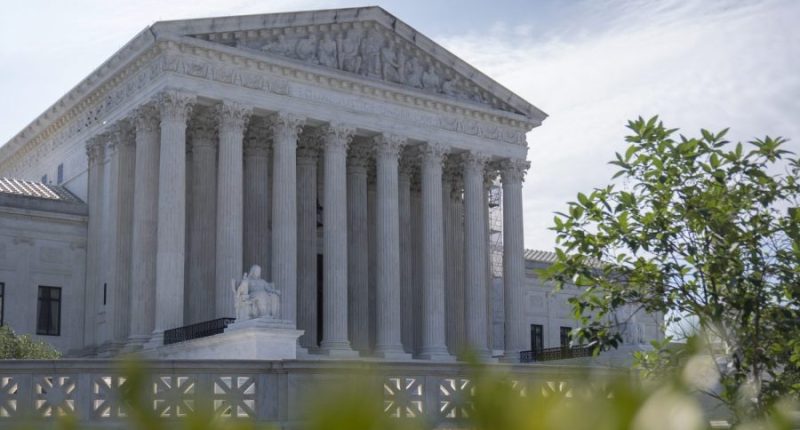Share this @internewscast.com

The Supreme Court ruled that a Maine Republican state lawmaker censured for a post about a transgender athlete must be allowed to vote as she mounts a legal challenge.
Tuesday’s emergency order blocks Maine House Speaker Ryan Fecteau (D) and the clerk from preventing State Rep. Laurel Libby (R) from voting or speaking on the floor as she presses claims the block violates the 14th Amendment’s guarantee of equal protection.
Justices Sonia Sotomayor and Ketanji Brown Jackson, both members of the court’s liberal wing, dissented. The majority and Sotomayor did not explain their reasoning, but Jackson said the case didn’t present an emergency and would invite others to rush to the Supreme Court.
“Why would any applicant who thinks the lower courts are mistaken wait for those courts’ final word on an issue if real-time error correction via our emergency docket is readily available?” Jackson wrote.
It marks a significant legal victory for Libby after lower courts declined to intervene.
Facebook post included transgender student’s name, deadname
The dispute steps from Libby’s Feb. 17 Facebook post that included a transgender high school student’s photo, name and deadname, meaning the name they used before transitioning. The student had won a girls’ track and field championship event in the state.
Maine’s Democratic-led House censured Libby along party lines in a 75-70 vote. Libby did not challenge the censure itself before the Supreme Court, but she claimed that preventing her from voting or speaking on the floor violates the Constitution’s demand of equal state legislative representation.
“It would be a remarkable break from history to permit the continued disenfranchisement of thousands of Americans for their chosen representative’s protected speech,” Libby’s attorneys at law firm Consovoy McCarthy wrote in court filings.
Jackson pushed back in her solo dissent, noting that the lower court was moving quickly to decide the case.
“Meanwhile, before us, the applicants have not asserted that there are any significant legislative votes scheduled in the upcoming weeks; that there are any upcoming votes in which Libby’s participation would impact the outcome; or that they will otherwise suffer any concrete, imminent, and significant harm while the lower court considers this matter,” Jackson wrote.
Libby contended Fecteau was effectively forcing her to recant her views opposing transgender athletes in girl’s sports, but Fecteau, represented by Maine Attorney General Aaron Frey’s (D) office, pushed back and described the required apology as a “modest punishment.”
Frey’s office insisted the lower courts were right to conclude that Libby’s suit is barred by legislative immunity.
“Applicants ask this Court, through its emergency docket, to insert itself into this intra-parliamentary dispute and, for the first time, pierce legislative immunity for core legislative acts,” the attorney general’s office wrote in court filings.
The Supreme Court’s decision comes days after it intervened to allow President Trump to enforce his transgender troops ban.












